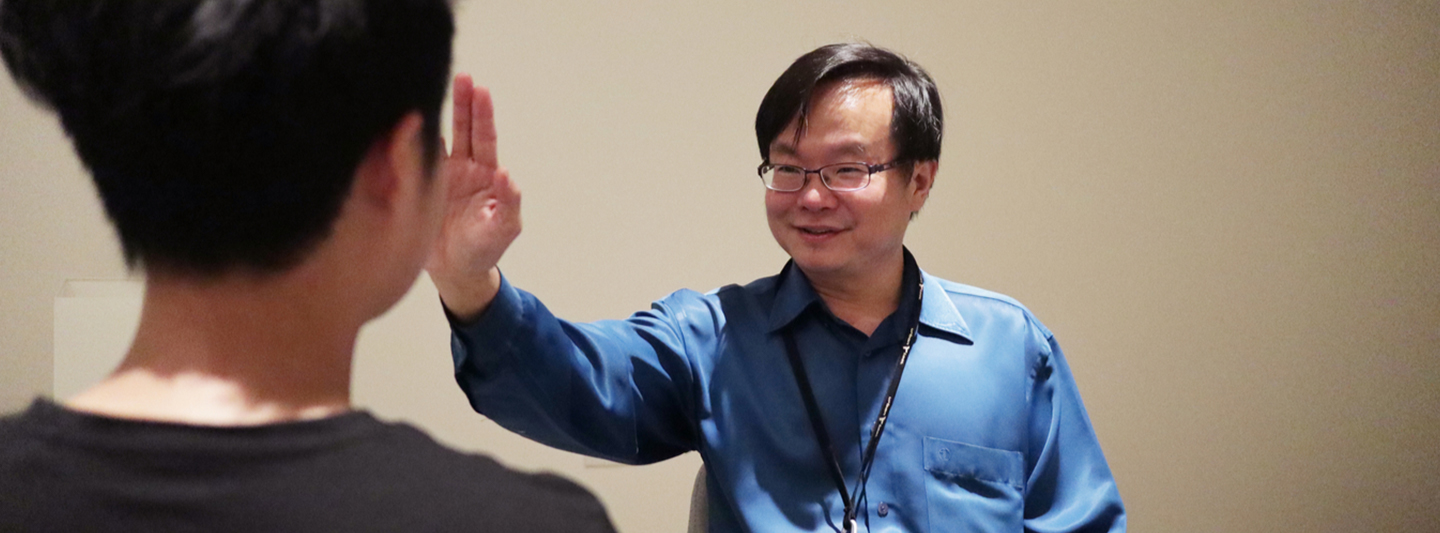We live in a fast-paced world where the weight of everyday demands is real and exhausting.
There's a surge in stress-related disorders of all kinds for all ages, primarily working adults who may suffer from symptoms of depression, feelings of anxiety, and attention disorders.
A survey conducted by The American Institute of Stress accounts that 65 percent of workers experience workplace stress which has caused difficulties and more than 10 percent described these as having major effects. If not treated by a professional, the result of some of these effects may potentially affect the workplace output of the individual.
For further insight on the why’s and how's of this unique and life-changing quality EMDR therapy presents, we reached out to Dr Matthew Woo who specialises in EMDR (Eye Movement Desensitisation Reprocessing) therapy. He is the founder president of EMDR Singapore in 2010-2012 and has been a facilitator with the EMDR institute since 2011. He is also the President of EMDR Asia from 2017 to 2020.
What is EMDR Therapy?
Eye Movement Desensitization and Reprocessing (EMDR) therapy is an interactive psychotherapy technique used to relieve psychological stress. It is an effective treatment for trauma and post-traumatic stress disorder (PTSD).
The EMDR Peak Performance Protocol (EMDR Triple-P) is designed to enhance performance at the workplace for high performing clients. The EMDR Triple-P helps clients in business, performing and creative arts and sports using the full sensory experience of successful future responding, rehearsed, and integrated using bilateral stimulation. EMDR therapy involves attention to three time periods: the past, present, and future. Focus is given to past disturbing memories and related events. Also, it is given to current situations that cause distress, and to developing the skills and attitudes needed for positive future actions.
Who will benefit from EMDR Triple-P?
High performing clients who desire an extra edge in performance at the workplace. These individuals can be in industries that include business, performance and creative arts, and sports.
Individuals whose recent traumas are related to their employment history (e.g., performance anxieties, or difficult collegial relationships) can also make good progress with the EMDR Triple-P. In short, the EMDR Triple-P can assist a broad range of clients in expanding their capacities for a more creative and rich future.
Program objectives of EMDR
Research and studies conducted show that people who use EMDR as treatment of choice potentially experience the benefits of psychotherapy that once took years to make a difference. It is widely assumed that severe emotional pain, prolonged workplace stress requires a long time to heal. EMDR therapy as mentioned by Dr Matthew has five main objectives that he works his client’s towards.
-
To emphasize what is positive in the client’s existing repertoire
-
To provide the extra edge in performance at the workplace
-
To reduce performance anxieties from recent/past employment history
-
To reprocess possible trauma from setbacks or perceived failures from recent/past employment history
-
To rehearse and integrate the full sensory experience of successful future response with bilateral stimulation
Using the detailed protocols and procedures learned in EMDR therapy training sessions tied with important objectives, clinicians help clients activate and work towards their natural healing process, therefore, enabling enhanced performance both at work and in life.
How many sessions do I need?
The EMDR Triple-P is typically undertaken over 4-6 sessions to give individuals the extra edge in performance. For cases that involve a history of setbacks and perceived failures in employment, EMDR Triple-P can range from 4 sessions for a relatively straightforward recent single-episode negative event to 12-15 sessions for a client with a fairly complex history.
During your initial consultation with a trained EMDR therapist, relevant factors will be considered to help you to move forward with EMDR and the number/frequency of sessions you need.
In conclusion, EMDR therapy has proven effective in treating trauma, PTSD, and enhancing focus. It may also be able to help treat other mental conditions like anxiety, depression, and panic disorders. Some people may prefer this treatment to prescription medications. Therefore, an accessible programme you can turn to for enhanced focus and have you at peak performance output at work is EMDR Therapy.
If you think EMDR therapy is right for you, make an appointment with Dr Matthew and experience the change you deserve.
Contributor:

Dr Matthew Woo is currently a principal consultant clinical psychologist and director of Riverlife Psychology. He was formerly in the employment of the Institute of Mental Health for 19 years, and held the position of Senior Principal Clinical Psychologist and Deputy Head of the Department of Psychology.
With more than 20 years of experience, Dr Matt can help you reach your goals and improve the quality of your life and relationships. He provides a safe space to explore issues and provides an expert's perspective on the sequences of behaviour and patterns at play in your life. If you tend to have a negative outlook, don't expect to become an optimist overnight. But with practice, eventually, your self-talk will contain less self-criticism and more self-acceptance. You may also become less critical of the world around you.


